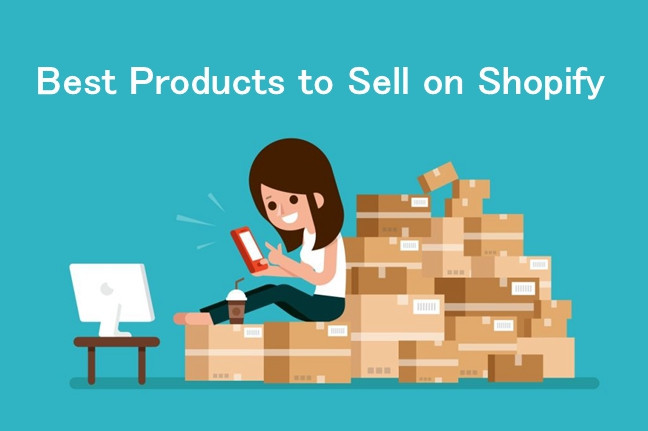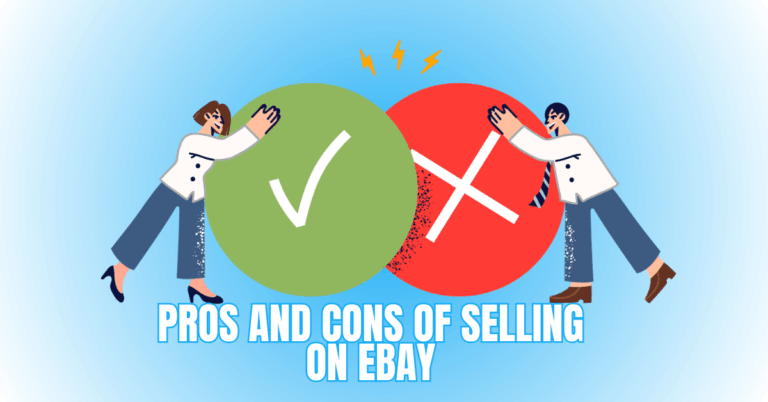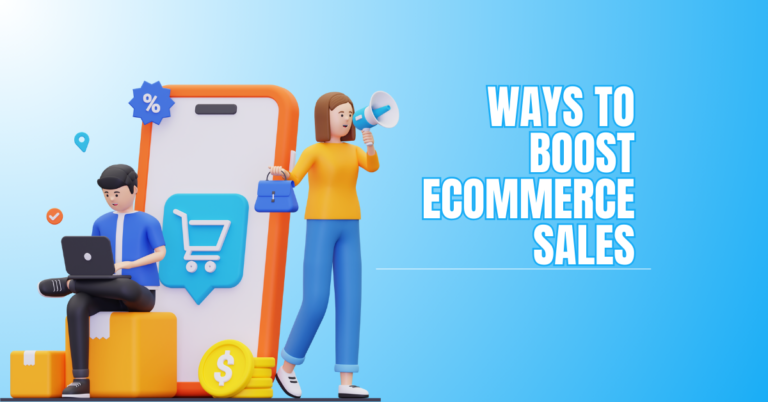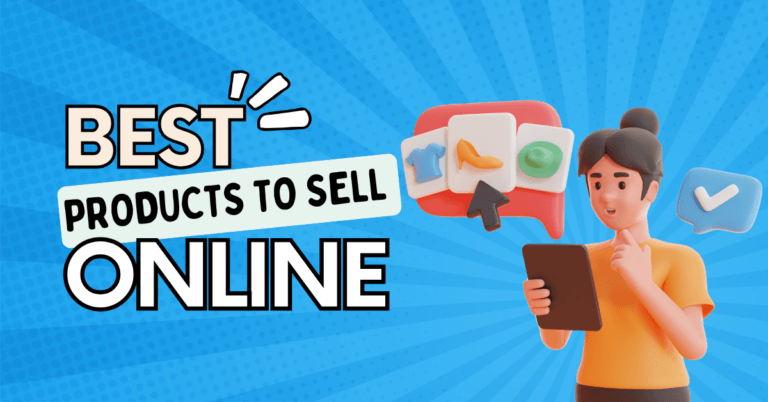Why Every eCommerce Site Needs A Blog

Why Every eCommerce Site Needs A Blog
In today's fast-paced digital world, eCommerce websites are more than just virtual storefronts. They have evolved into comprehensive platforms that offer a wide range of features and functionalities.
A blog is a crucial component that has become increasingly essential for the success of eCommerce sites.
While eCommerce websites primarily focus on selling products or services, a blog is a valuable complementary tool with various benefits.
Want to Start Making Money Online?
Try My #1 Recommendation Program!
Whether you're a small business owner, a budding entrepreneur, or a well-established brand, integrating a blog into your eCommerce site can significantly enhance your online presence, customer engagement, and overall business success.
This article delves into why every eCommerce site should consider incorporating a blog and explores how it can be a game-changing asset in the competitive online marketplace.
Exploring Why Every eCommerce Site Needs A Blog
In the ever-evolving landscape of eCommerce, where competition is fierce and online shoppers are inundated with choices, more than having a virtual storefront is required to stand out.
Enter the blog – a dynamic, multifaceted tool that transcends traditional product listings and transactional interactions.
Just as a physical store thrives on offering products and engaging experiences, an eCommerce site can benefit immensely from the strategic incorporation of a blog.
Here are several reasons & advantages for why each & every eCommerce business needs a blog:

1. Enhanced SEO And Visibility
In the intricate web of the digital world, where search engines serve as gatekeepers to online visibility, having an eCommerce blog can significantly boost your website's search engine optimization (SEO) efforts.
A well-executed blog strategy offers a steady stream of fresh and relevant content, signalling to search engines that your site is active, authoritative, and valuable to users.
Every new blog post increases the possibility that users will discover your eCommerce offerings and the likelihood that your website will appear in search results.
Moreover, incorporating targeted keywords and phrases in your blog posts can enhance your site's visibility for specific search queries, attracting potential customers actively seeking products or information related to your niche.
The dynamic nature of blogging enables you to cover a wide range of topics, address common queries, provide solutions, and engage users in meaningful ways.
As your blog content accumulates, it creates a robust web of interconnected information, further bolstering your site's overall credibility and relevance in the eyes of search engines.
In this digital age, where the battle for attention is fought on search engine result pages, a well-maintained eCommerce blog becomes a potent weapon in your arsenal, propelling your online store to the forefront of users' screens.

2. Increased Organic Traffic
An eCommerce blog is a gateway to a world of increased organic traffic. When you create insightful, informative, and engaging blog posts that cater to the interests and queries of your target audience, you position your online store as a valuable resource.
By addressing common questions, concerns, and interests within your industry, you draw in users seeking information about your products or services.
These visitors may be short-term buyers, but potential customers are exploring options and seeking guidance.
Want to Find Out How To Start Your Home-Based Business?
Try My #1 Recommendation Platform!
Your blog's content becomes a magnet, attracting these users to your website as a trusted source of knowledge.
They become more inclined to explore your eCommerce offerings as they find answers and value in your posts.
Furthermore, each well-optimized blog post adds another entry point for users to discover your site through search engines.
This synergistic effect can lead to a snowballing increase in organic traffic over time. By consistently offering valuable insights and solutions through your blog, you're providing valuable content to your audience and establishing a steady stream of potential customers drawn to your eCommerce site for both information and products.

3. Establishing Authority And Expertise
An eCommerce blog is invaluable for establishing authority and expertise within your industry. By consistently delivering well-researched, valuable content, you showcase your deep understanding of the subject matter and position yourself as a thought leader.
You build credibility and trust with your audience by sharing insights, tips, and in-depth analyses relevant to your products or services.
Readers will perceive your eCommerce site as more than just a place to buy products; it becomes a hub of knowledge and expertise.
As your blog posts provide solutions to common problems, answer pressing questions, and offer valuable insights, your audience recognizes your dedication to providing meaningful value beyond sales pitches.
In an era where consumers can access vast information online, demonstrating your expertise through your blog can help differentiate your eCommerce site from competitors.
When potential customers see that you deeply understand your industry, they are more likely to choose you as their preferred source of products and information.
Over time, as your blog gains traction and garners a loyal readership, your eCommerce site's authority and expertise can become a significant driving force behind its success.

4. Building A Community
An eCommerce blog is a powerful tool for building a community and fostering a sense of connection with your audience.
You create a space through engaging and relatable content where readers can interact, share their thoughts, and form connections with like-minded individuals.
Encouraging comments and discussions on your blog posts allows meaningful conversations to unfold.
These interactions provide valuable insights into your audience's preferences and needs and allow you to address their concerns directly.
Sharing relatable stories, personal experiences, and user-generated content can further enhance the sense of community.
Readers who resonate with your content are more likely to engage with your brand beyond transactions.
This sense of belonging can turn casual visitors into loyal customers who feel emotionally connected to your eCommerce site.
Moreover, the comments section of your blog can become a platform for readers to connect, share advice, and learn from one another.
This sense of community is not only rewarding for your audience but also beneficial for your business.
As readers feel heard, valued, and engaged, they develop a stronger attachment to your brand.
This community-building aspect of your blog can lead to increased brand loyalty, word-of-mouth referrals, and a more vibrant and active customer base.

5. Storytelling And Brand Identity
An eCommerce blog provides a powerful platform for weaving the narrative of your brand's journey, values, and people.
Storytelling is a compelling way to connect with your audience on a deeper level, giving them insights into the heart and soul of your business.
Through blog posts, you can share the story behind your brand's inception, the challenges you've overcome, and the milestones you've achieved.
Are You Tired Of Scams?
Try The Most-Trusted Training Platform To Make Money Online!
This transparency humanizes your business, making it relatable and authentic in the eyes of your customers.
By showcasing the people behind the scenes, from founders to employees, you create a relatable face for your brand, fostering a sense of familiarity and trust.
Your blog allows you to communicate the values and mission that drive your business, aligning your brand with your customers' beliefs and creating a lasting emotional connection.
When readers resonate with your brand story, they're more likely to become loyal supporters, engaging with your products and advocating for your business.
As you craft blog posts that delve into your brand's journey, culture, and purpose, you establish a distinctive identity that sets you apart in a competitive market.
This storytelling approach adds depth to your brand, enriching its narrative and resonating with customers who value authenticity.
Through your blog, you can tell the story of your brand's evolution, highlighting its products and the essence of what makes your business special.
This authentic portrayal fosters a deeper relationship with your audience, ultimately driving customer loyalty and advocacy.

6. Promoting Products And Services
An eCommerce blog offers an ideal platform to seamlessly promote your products and services while delivering valuable content to your readers.
By integrating product-related content into your blog posts, you can highlight the features, benefits, and practical uses of your offerings in a context that resonates with your audience.
Craft informative articles that showcase how your products solve specific problems, provide solutions, or enhance aspects of your readers' lives.
Whether through detailed tutorials, case studies, or customer testimonials, you can illustrate the practical applications of your products.
This approach educates your audience and positions your eCommerce site as a valuable resource that genuinely addresses their needs.
By showcasing your products in a helpful and non-intrusive manner, you can naturally drive interest and curiosity among your readers.
Furthermore, visitors who see that your blog consistently provides insights and solutions are likelier to associate your brand with expertise and trustworthiness.
Integrating promotional content into your blog demonstrates the value of your products and encourages readers to explore your offerings further.
As a result, your blog becomes an essential component of your overall marketing strategy, guiding potential customers toward informed purchasing decisions while nurturing their relationship with your brand.

7. Customer Engagement And Loyalty
Running a successful eCommerce business requires maintaining client engagement and cultivating loyalty, and a well-done blog may be vital in attaining these goals.
Your clients will continue to visit your website if you continuously give worthwhile and pertinent material that keeps them interested.
Your blog can be a dynamic platform for sharing updates, whether about new product launches, upcoming events, or changes in your business.
Providing your audience with exclusive insights and sneak peeks makes them feel like insiders, cultivating a sense of belonging and strengthening their connection to your brand.
Moreover, you can use your blog to reward your loyal customers with special offers, discounts, or promotions that are exclusively available through your posts. This sense of appreciation deepens their loyalty and encourages repeat purchases.
Through well-crafted blog posts, you can offer practical tips, industry insights, and solutions to common challenges your customers might face.
Want To Learn How To Create Your Own Website And Online Business?
Try My #1 Recommendation Training And Hosting Platform!
This positions your eCommerce site as a valuable resource and establishes your credibility and authority in your niche.
As customers perceive your blog as a source of assistance and value, they are more likely to trust your products and turn to your brand whenever they're in need.
Whether through comments, social media shares, or direct interaction, this engagement strengthens customer loyalty, boosts retention rates, and contributes to the long-term success of your eCommerce business.

8. Educational Content
Educational content is a powerful tool for eCommerce sites, allowing them to provide more than just products – they offer knowledge and value to their customers.
You empower your customers with valuable insights and skills by offering informative articles, tutorials, and guides related to your industry or niche.
Educational content addresses their pain points and questions and positions your eCommerce site as a resource for learning and self-improvement.
Customers who find your blog posts helpful and educational are more likely to trust your brand and view you as an authority in your field.
This trust can lead to repeat visits as customers return to your site for more information, advice, and guidance.
Moreover, consistently delivering educational content establishes a pattern of engagement with your audience, creating a sense of anticipation for your next piece.
This encourages customers to stay connected, sign up for newsletters, and actively participate in discussions.
As a result, your eCommerce site transforms from a mere transactional platform to a hub of knowledge and interaction, driving customer loyalty and establishing lasting relationships.

9. Cross-Promotion And Partnerships
Through your eCommerce blog, cross-promotion and partnerships can greatly amplify your brand's visibility and reach.
By collaborating with influencers, industry experts, or complementary brands, you can create guest posts or joint content that caters to their established audiences.
This strategic approach exposes your eCommerce site to new potential customers and enhances your credibility through association with respected figures in your field.
When influencers or experts contribute to your blog, their followers are more likely to explore your offerings, as the endorsement lends authenticity and trust.
Similarly, partnering with complementary brands allows you to tap into a shared target market, where both brands can benefit from exposure to each other's loyal customer base.
Cross-promotional efforts can take the form of co-authored articles, interviews, or collaborative projects that showcase the value and uniqueness of your eCommerce site.
This widens your audience and encourages engagement, as readers from both sides are inclined to participate in discussions and share their experiences.
Through cross-promotion and partnerships, your eCommerce blog becomes a hub of diverse perspectives and expertise, enriching the content and fostering a sense of community among your readers.

10. Long-Term Value
One of the most significant advantages of incorporating a blog into your eCommerce site is the long-term value it offers.
Unlike social media posts that can quickly get buried in the feed, blog posts have enduring relevance.
Over time, as you consistently publish informative and relevant content, these posts accumulate and contribute to building a comprehensive knowledge base.
Each blog post becomes valuable information that addresses specific topics, answers common questions, and provides insights into your industry or niche.
This ever-growing content repository continues to attract organic traffic from search engines as people actively seek answers to their queries.
This means even posts published months or years ago can still drive significant traffic to your site and generate leads.
Additionally, the accumulation of content positions your eCommerce site as an authoritative resource within your field.
It demonstrates your dedication to providing valuable information and positions your brand as a reliable source of knowledge.
The long-term value of blog content is a sustainable way to maintain and increase your site's visibility, engagement, and customer base over time, establishing your eCommerce site as a trusted and reputable hub of information and products.

11. Social Media Content Source
Utilizing your blog posts as a social media content source offers a strategic advantage for your eCommerce site.
Blog articles are rich with informative and engaging material that can be repurposed to create compelling social media posts.
By sharing snippets, key takeaways, or intriguing quotes from your blog articles on platforms such as Facebook, Twitter, and LinkedIn, you can pique the interest of your followers and drive traffic back to your eCommerce site.
Additionally, sharing blog posts provides a consistent stream of relevant content for your social media feeds, enhancing your online presence and engagement.
The synergy between your blog and social media channels creates a cycle of content distribution and engagement, amplifying your eCommerce site's visibility and driving a continuous flow of interested visitors.
As a result, incorporating blog content into your social media strategy enhances your brand's reach, encourages audience interaction, and ultimately contributes to increased traffic and conversions on your eCommerce site.

12. Flexibility And Creativity
Blogs provide a platform for eCommerce sites to unleash their creativity and express their brand's unique identity.
You can experiment and engage with your audience innovatively through the diverse range of topics, writing styles, and formats blogs offer.
Whether you share informative articles, personal stories, or entertaining content, blogs allow you to tailor your approach to what resonates best with your target audience.
This creative freedom extends to exploring trending industry topics, discussing new product releases, or sharing behind-the-scenes insights highlighting your brand's authenticity.
Whether through a witty tone, heartfelt stories, or relatable anecdotes, your blog becomes a canvas for fostering genuine connections.
The dynamic nature of blogs allows you to adapt and evolve your content strategy as trends and consumer preferences shift.
This adaptability enables your eCommerce site to remain relevant and engaging, capturing your audience's attention while offering them a memorable and enjoyable browsing experience.
As a result, embracing the flexibility and creativity that blogs offer can elevate your eCommerce site's content marketing efforts, helping you stand out in a crowded online landscape and fostering a loyal community of readers and customers.
Having a blog isn't just about creating content; it's about creating a valuable resource for your customers, fostering engagement, and strengthening your brand's online presence.
Whether you're a small startup or an established eCommerce giant, a well-maintained blog can be a powerful tool for growth and success.
Conclusion
In conclusion, having a blog is not just an optional feature for an eCommerce site—it's a powerful tool that can propel your online business to new heights.
The benefits of incorporating a blog into your eCommerce strategy are extensive and far-reaching.
By harnessing the potential of a well-crafted blog, you create a space where your customers can engage, learn, and connect.
A blog helps your eCommerce site remain relevant, adaptable, and customer-centric in a rapidly evolving digital landscape.
Consistent creation of relevant and valuable content benefits your customers and contributes to your long-term growth by establishing your brand as a thought leader and fostering lasting customer loyalty.
By embracing the power of blogging, you're providing valuable resources to your customers and investing in the success and longevity of your eCommerce venture.
I trust you enjoyed this article on Why Every eCommerce Site Needs A Blog. Would you please stay tuned for more articles to come? Take care!
JeannetteZ
Want to Learn How to Build Your Own Home-Based Online Business & Start Making Money Online From Your Comfortable Couch?
Try Wealthy Affiliate!
Your Opinion Is Important To Me
Thoughts? Ideas? Questions? I would love to hear from you. Please leave me your questions, experiences, remarks, and suggestions about Why Every eCommerce Site Needs A Blog in the comments below. You can also contact me by email at Jeannette@WorkFromAnywhereInTheWorld.com.
Disclosure
This post may contain affiliate links. I earn from qualifying purchases as an Amazon Associate and other affiliate programs. Please read my full affiliate disclosure.
You may also enjoy the following articles:
Wealthy Affiliate Review – Scam or Legit? The Truth Exposed
Top Link-Building Strategies For 2022
How To Start With Keyword Research
Best Types Of Coupons For Your eCommerce Store







